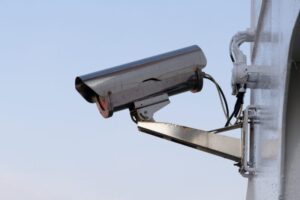
Myanmar’s junta government is working on deploying China-made biometric surveillance systems in multiple cities, according to a new Reuters report.
Citing multiple anonymous sources with knowledge of the matter, Reuters asserts that government authorities have awarded contracts to local procurement companies Fisca Security & Communication and Naung Yoe Technologies Co., which in turn are sourcing surveillance technologies from China’s Zhejiang Dahua Technology, Huawei, and Hikvision.
A Push to Blacklist
The latter is a major provider of facial recognition technology outside of China. The prolific presence of its technology in the United Kingdom prompted a cross-party group of 67 MPs and Lords to issue a call this month for the British government to blacklist Hikvision – as well as Dahua – from the government procurement process. That came after the country’s Biometrics and Surveillance Camera Commissioner, Fraser Sampson, himself encouraged the government to ban Hikvision as a facial recognition vendor in the UK.
The government officials’ objections to Hikvision mainly revolve around its alleged role in providing technological support for the Chinese government’s oppressive surveillance program in Xinjiang province, where the government has been accused of human rights violations. But Commissioner Sampson also suggested that Hikvision cameras could potentially pose a national security threat in the form of spyware.
Neither Dahua nor Huawei have responded to Reuters requests for comment. Hikvision, however, insisted that it had not sold technology directly to the Myanmar junta.
Popular Among Regimes
The latter’s effort to expand its biometric surveillance capabilities marks the latest example of an authoritarian government looking to facial recognition technology to strengthen its hold on power. China, of course, has for years offered the starkest example of a top-down biometric surveillance state; but lately Russia has been amping-up its own use of facial recognition to arrest dissidents and surveil politically unstable areas.
In May, the Russian government issued a directive to multiple banks that essentially ordered them to share their customers’ biometric data with the Unified Biometric System, a government-run biometric program that serves law enforcement and intelligence agencies. Last week, the lower house of Russia’s legislative assembly passed legislation aimed at legalizing this ‘conconsensual transfer’ of data.
Yet democratic governments in the West have also been enthusiastic in their adoption of biometric surveillance and security technologies, often with respect to law enforcement and border control applications. And Reuters notes that the Myanmar junta’s efforts actually build upon surveillance projects that were either implemented or planned under the previous, democratically elected government led by Aung San Suu Kyi, who is now under house arrest.
According to the report, Aung San Suu Kyi’s National League for Democracy government had been working on such projects in five major cities. The government had reportedly deployed CCTV cameras in Naypyidaw and Yangon, while authorities in the city of Mandalay had establish a surveillance camera deal with Huawei. One anonymous source told Reuters that Huawei was to provide facial recognition systems to Naypyidaw. Now, the military junta is seeking to expand the overall surveillance apparatus to another five cities.
A Complicated Role
Aung San Suu Kyi had won international acclaim over the past few decades for her efforts to restore democracy to Myanmar, which ultimately resulted in the victory of her NLD party in 2015 elections. But in the years since, her reputation has suffered due to the Myanmar military’s persecution of Rohingya Muslims, which some international observers have labelled a genocide.
The campaign has, at the very least, resulted in a humanitarian crisis, with vast numbers of Rohingya fleeing to neighboring Bangladesh – and here, again, biometric technology plays a role, this time almost unambiguously positive. The United Nations’ refugee agency, the United Nations High Commissioner for Refugees or UNHCR, has been a vocal proponent of the use of biometrics to provide reliable identification to displaced persons, and has very publicly celebrated its use of biometric tools to provide aid to many tens of thousands of Rohingya refugees, with a spokesperson having called their biometric ID cards “fraud-proof” back in 2019.
This is a tangent, of course, but it’s a tangent that further complicates the role of biometric technology in geopolitical affairs, as does the pursuit of biometric technology by the democratically elected NLD and the military junta in succession.
That having been said, it’s clear that biometric surveillance tools would offer the junta a particularly powerful tool in its surveillance efforts, which are already widespread. As Human Rights Watch Deputy Asia Director Phil Robertson points out, the junta can use surveillance technology to track the movements of democracy activists and determine connections between them, among other things. And that could add further weight to the calls in the UK and elsewhere to ban Hikvision cameras, and perhaps biometric surveillance technologies in general.
Sources: Reuters, BBC, The New York Times
–
July 12, 2022 – by Alex Perala







Follow Us